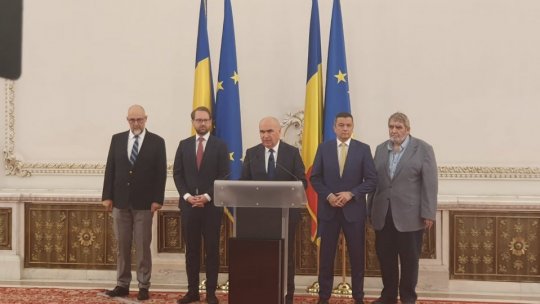National Press Review March, 13
Articles from dailies România Liberă, Adevărul, Ziarul Financiar and Evenimentul Zilei.

Articol de Mihai Udroiu, 13 Martie 2012, 13:08
“The drugs crisis: 180 millions Euros annually casted !” writes România Liberă, which quotes the data of a study made by a company of audit from Great Britain, referring to the system of compensation of the drugs in our country.
According to the published ciphers, many of the drugs subsidized by the Romanian state are more expensive than those from the Great Britain, and the extra money spent could be used to rebuild six new ultramodern hospitals every year.
In the article are presented also a few drugs whose price is considered too big.
The publication also recorded the Ministry of Healthiness representatives’ opinion, who affirm that the Britain’s recommendations will be the base for the establishment of theminimum packet of medical services, but, taking into account also the local aspect.
Ziarul Financiar makes the “balance of a decade of secrets” at the Hydropower.
The publication starts from the information published by the Proprietatea Fund and estimates that “through direct contracts were evaporated from the Hydropower 1,5 milliards euro”.
The main identified cause is the low cost of the energy which was get by another firms, strategy explained by the representatives of the company, contacted by the newspaper, as a necessity in order to obtain necessary loans for modernization and refurbishment.
“Căncescu, tax evasion of 1,5 millions of euro”, we read in the Evenimentul Zilei, which refers to the Anti-corruption National Department (DNA) investigation in the case of the president of the County Council Braşov. In order to clarify the accusations of tax evasion for Aristotel Căncescu, the newspaper tries to rebuild the route of the money coming from the operation of selling 24 audiovisual licenses, that don’t exist in his property declarations and for whom he did not pay tax.
“The unjustified property becomes delinquents” writes in the fond article from Adevărul, about the directive proposed by the European Committee who wants measures without precedent regarding the following, the seizure and the confiscation of the money whose provenience cannot be proved.
The publication points out that in Romania, the law is still mild with big delinquents and analyses the possible impact of this kind of normative act on the politic environment or business from our country. In the article is recorded also the point of view of the general prosecutor, Laura Codruţa Kovesi, who exposes the authorities’ initiatives from Bucharest, but points out also the weaknesses of the Romanian system of justice.
Alexandra-Diana Mircea
MTTLC, Bucharest University














